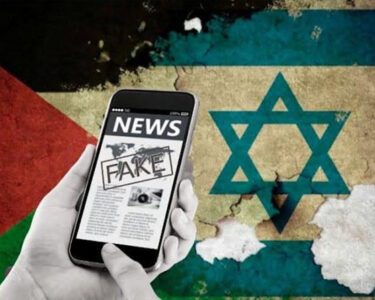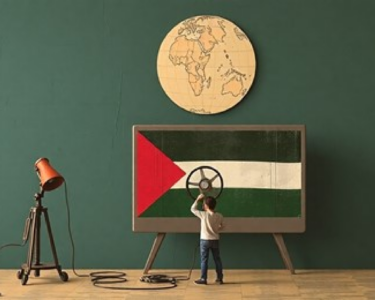“Words are powerful; they can bring nations together or tear them apart.”
This ancient wisdom resonates more than ever in the age of social media. Across Southeast Asia, platforms like Facebook, Twitter, and Instagram have reshaped the dynamics of political movements, amplifying marginalized voices and igniting grassroots activism. In a region marked by diverse political landscapes and often repressive regimes, social media has become a tool for both resistance and reform, challenging the status quo in unprecedented ways.
Southeast Asia is home to a rapidly growing digital population. According to data from We Are Social and Hootsuite, Southeast Asia is one of the fastest-growing regions for internet and social media usage. The proliferation of smartphones has democratized access to information, allowing social media to serve as a primary tool for political mobilization. Platforms such as Facebook, Twitter, Instagram, and local platforms like Zalo in Vietnam and LINE in Thailand have become spaces for political discourse, activism, and organization.
For political movements, social media offers several advantages:
For political movements, social media offers several significant advantages. One of the most important benefits is access to mass audiences. Activists can reach large groups of people with relatively limited resources, allowing them to bypass traditional media channels, which are often controlled or censored by governments. This direct line of communication enables activists to disseminate their messages without interference, expanding their reach and influence across social and geographical boundaries.
Another key advantage is real-time organization. Social media facilitates the rapid dissemination of information, enabling activists to coordinate protests, rallies, and demonstrations almost instantly. The immediacy of social media allows movements to respond quickly to changing political circumstances, organize flash protests, and keep participants informed about developments in real-time. This capability enhances the flexibility and resilience of political movements, particularly when facing attempts to suppress or disrupt their activities.
Social media improves visibility and awareness. Through the use of hashtags, viral videos, and online campaigns, political movements can attract global attention to their cause. These tools help activists amplify their messages, raise awareness about local political struggles, and garner support from international communities.
Hashtags such as #WhatsHappeningInThailand or #WhatsHappeningInMyanmar, for example, have trended worldwide, drawing attention to protests and human rights abuses that may have otherwise been overlooked by traditional media outlets.
Thailand’s Pro-Democracy Movement

One of the most notable examples of social media’s impact on political movements is Thailand’s pro-democracy movement, which gained momentum in 2020. Protesters, primarily composed of youth and students, used platforms such as Twitter, Facebook, and Telegram to organize anti-government demonstrations. The movement called for reforms to the monarchy and military-backed government, a subject traditionally regarded as taboo due to strict lese-majeste laws.
Through social media, activists bypassed state-controlled traditional media to amplify their voices. They popularized hashtags such as #WhatsHappeningInThailand, which trended globally, bringing international attention to their cause. Twitter became the primary platform for organizing protests, sharing real-time updates, and coordinating decentralized movements across the country. Despite government crackdowns, arrests, and internet restrictions, social media provided a resilient channel for activists to continue their efforts.
In this case, social media also served as a shield against censorship. With the government controlling most traditional news outlets, social media became the most reliable source of information for both protesters and supporters. Anonymous accounts and VPNs helped circumvent government surveillance and suppression, allowing the movement to continue.
Myanmar’s Spring Revolution

The February 2021 military coup in Myanmar sparked nationwide protests against the junta, and social media became a central battleground. Following the coup, the junta immediately cut off access to the internet and social media platforms like Facebook, which were instrumental in mobilizing protesters during the country’s previous political transition.
However, once internet access was restored, Facebook and Twitter became essential platforms for organizing mass protests and raising international awareness about the junta’s brutal crackdown.
Despite the military’s efforts to control the narrative by shutting down internet services and blocking access to social media, citizens used VPNs and encrypted messaging apps like Signal and Telegram to continue organizing protests. The hashtag #WhatsHappeningInMyanmar trended globally, similar to Thailand’s movement, with millions of people sharing real-time updates, videos of the military’s violent suppression, and calls for international intervention.
Indonesia’s #ReformasiDikorupsi Movement

In Indonesia, the #ReformasiDikorupsi movement in 2019-2020 highlighted social media’s role in galvanizing anti-corruption protests. The movement began in response to proposed legislative changes that would weaken Indonesia’s anti-corruption commission and reduce oversight of public officials. Young activists turned to Twitter and Instagram to mobilize protests across the country, accusing the government of undermining the reforms of the post-Suharto era.
Hashtags such as #ReformasiDikorupsi became symbols of the movement, with millions of Indonesians, particularly youth, sharing their frustrations online. Social media helped not only to organize mass protests but also to spark nationwide debates about the government’s commitment to reform.
Online petitions, memes, and infographics explaining the implications of the proposed laws spread widely, engaging even those who were previously politically apathetic.
Like in Thailand and Myanmar, Indonesian activists faced obstacles such as internet blackouts and online censorship, yet they continued to leverage social media to challenge the government and hold political leaders accountable.

While social media has proven to be a powerful tool for mobilizing political movements in Southeast Asia, it is not without limitations. Governments in the region have become increasingly adept at using the same platforms for surveillance, misinformation, and propaganda.
In countries like Vietnam and Cambodia, authoritarian regimes have employed sophisticated cyber-troops to flood social media with pro-government messages, drown out opposition voices, and spread disinformation. Moreover, state-sponsored trolls and bots are used to target and harass activists, making online activism risky.
Social media companies themselves have been criticized for failing to adequately address these challenges. Platforms like Facebook have come under fire for allowing the spread of hate speech and disinformation during political crises, as seen during Myanmar’s Rohingya crisis, where Facebook was used to incite violence against the minority Muslim population.
Additionally, the reliance on social media poses the risk of creating “echo chambers,” where activists are primarily communicating with like-minded individuals rather than engaging broader communities. This can limit the reach of movements and reduce their effectiveness in achieving political change.
Social media has become an indispensable tool for political movements in Southeast Asia, offering unprecedented opportunities for organizing, mobilizing, and amplifying political causes. From Thailand’s pro-democracy movement to Myanmar’s Spring Revolution and Indonesia’s anti-corruption protests, activists have utilized social media to challenge authoritarian regimes, raise awareness, and demand accountability.
However, the same platforms that enable political activism can also be weaponized by governments to suppress dissent, spread disinformation, and surveil citizens. Despite these challenges, social media will continue to play a crucial role in shaping the political landscapes of Southeast Asia, empowering citizens to fight for democratic reforms, transparency, and justice.




